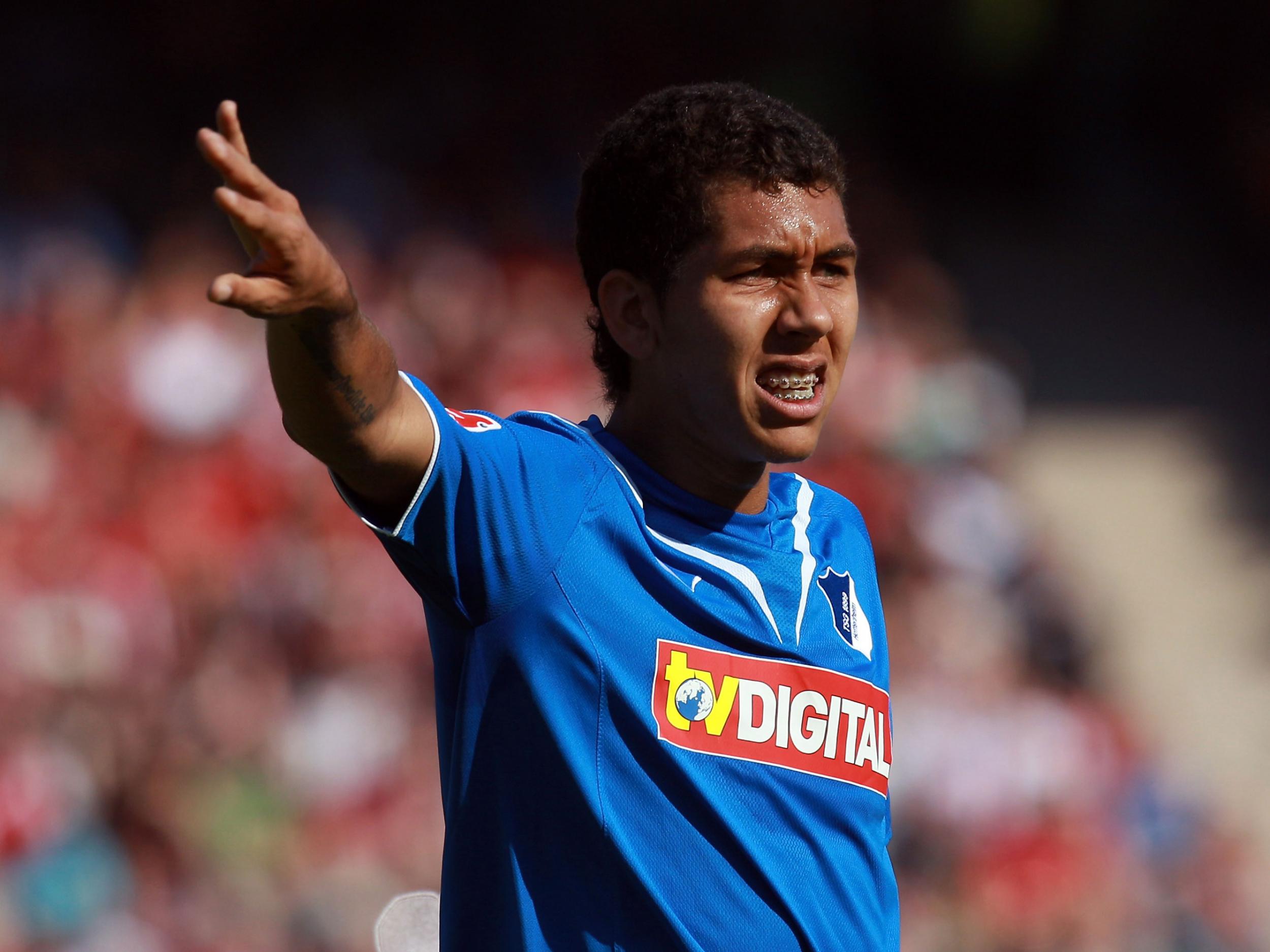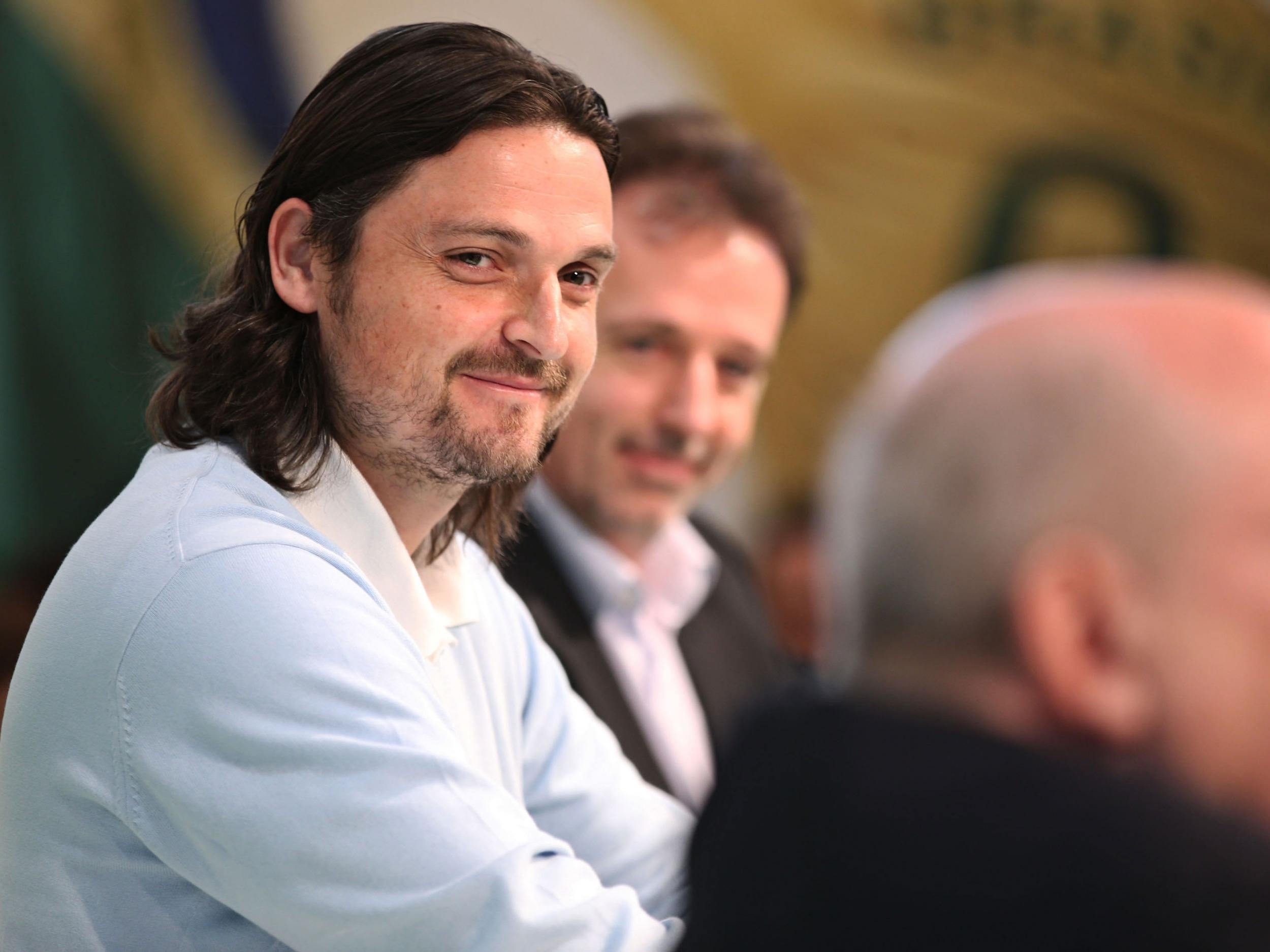Hoffenheim and the man who discovered Roberto Firmino must now try to stop him and Liverpool
Lutz Pfannenstiel helped to kick-start a teenage Firmino's career in Germany

Your support helps us to tell the story
From reproductive rights to climate change to Big Tech, The Independent is on the ground when the story is developing. Whether it's investigating the financials of Elon Musk's pro-Trump PAC or producing our latest documentary, 'The A Word', which shines a light on the American women fighting for reproductive rights, we know how important it is to parse out the facts from the messaging.
At such a critical moment in US history, we need reporters on the ground. Your donation allows us to keep sending journalists to speak to both sides of the story.
The Independent is trusted by Americans across the entire political spectrum. And unlike many other quality news outlets, we choose not to lock Americans out of our reporting and analysis with paywalls. We believe quality journalism should be available to everyone, paid for by those who can afford it.
Your support makes all the difference.What motivates a club to pay £3.5m for an skinny, unproven teenager from the Brazilian port city of Maceió and bring him to the small village of Hoffenheim in south-west Germany? It cannot just be prodigious talent. “You find lots of top class players in Brazil, but can they adjust to the lifestyle and the style of football in England or in Germany,” asks Lutz Pfannenstiel, a former goalkeeper, the only player to have played in all six Fifa confederations and now Hoffenheim’s head of international relations and scouting.
Pfannenstiel had only been working for the Bundesliga club for a few months when in 2010, after recommendations from the player’s agency, he personally watched a 19-year-old called Roberto Firmino. Hoffenheim soon agreed a deal with Tombense, Firmino’s club at the time, and he arrived in his new, colder, harsher surroundings in the New Year.
“He was an 'unwritten paper',” Pfannenstiel explains. “Nobody really knew that much of him but, the directors thought that he could be what we were looking for. He did not come and have an impact within three days. When he came he was much lighter but he worked very hard and took on a lot of the German mentality, doing extra work and being very disciplined.”
Firmino is often thought to be just another element of Liverpool's fast and sometimes devastating attack, but while the roles of Sadio Mané, Mohamed Salah and Philippe Coutinho are somewhat interchangeable, Firmino’s is defined and unique. The Brazilian is tasked with making space rather than exploiting it, dragging defenders out of position so that the gaps they leave can be attacked. His duties come off the ball as much as on it, in defence as much as attack. He is the one to lead Jürgen Klopp’s famous press from the front, just as he did at Hoffenheim.
“I wouldn't describe him as a typical Brazilian player, he's a player who has Brazilian skills and Brazilian attributes, but his game comes through that mixture with the German style of play,” Pfannenstiel says. “He works hard, works especially a lot after he loses the ball, falls behind and works very good defensively.
“He was a likeable guy who got on with everybody. He had a slight problem, like all Brazilians, at the start with the language, but he learned it also quite fast. He just seemed to one of these guys who understood our way of playing very, very fast.
“For me it was not a doubt that he would succeed at Liverpool, because of that style of play. When Brendan Rodgers took him over, he plays a different football and he had it a bit more difficult but when Klopp became the manager, I think it was written on the wall that he would become one of the top players there.”
There is more than a hint of pride and a sense of ownership in the way Pfannenstiel talks about Firmino, as though the Brazilian’s story is a vindication of Hoffenheim’s recruitment methods. The £29m Liverpool paid for Firmino was a significant mark-up on the modest fee Hoffenheim spent themselves and it remains the most that the Bundesliga club has ever received for a player.
“It was not about the financial side though,” he insists. “It was more that he was a player that was our own player, because he came so young. To see him get into the first team, starting to play games, starting to score goals, to become a leading player, a player at the head of the team, that was the fantastic thing about him.

“Obviously we still follow Firmino a lot. It was a big deal we did for a player which we created. To see him being successful for Liverpool, in the Premier League but also playing for the national team, it feels like that's a part of what we did.”
Hoffenheim’s challenge now is to contain their own creation. In the first leg, Firmino’s movement troubled his former club, dragging the likes of captain Kevin Vogt and his defensive partner Ermin Bikacic around to allow Mané and Salah in behind several times. His most telling contribution came on Liverpool’s vital second away goal, when a incisive through ball found James Milner and the substitute’s cross deflected in off a Hoffenheim defender.
Of course, Pfannenstiel knows of the danger his discovery poses better than anyone, but he believes that focusing too much on the Firmino narrative would be a mistake. “I think it's a nice story for everybody to talk about but at the end of the day, it's not Roberto Firmino against Hoffenheim or his old friends,” he says. “It's also not Jurgen Klopp against a German team. At the end of the day, it's the fourth-placed team of the Premier League against the fourth-placed team of the Bundesliga, which is in my opinion to two best leagues in the world.”
Hoffenheim, who must win and score at least twice to progress to the Champions League group stages at Anfield on Wednesday night, cannot waste energy on reunions. “I know that Liverpool is dying to play Champions League but for us, to have that cherry on the top of playing international football, we are now one step away from it after nearly being relegated a year ago,” Pfannenstiel insists. “We have to re-focus on the most important thing: trying our hardest to make that last step.”
Join our commenting forum
Join thought-provoking conversations, follow other Independent readers and see their replies
Comments